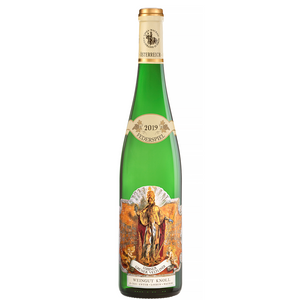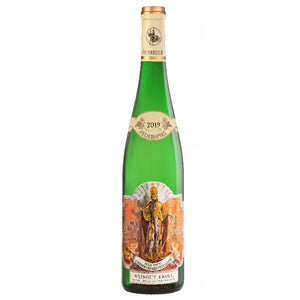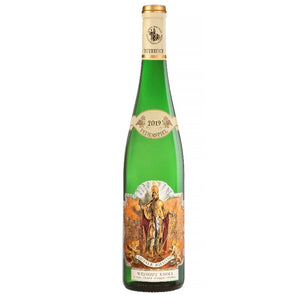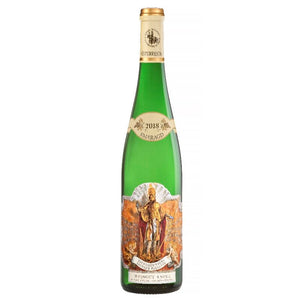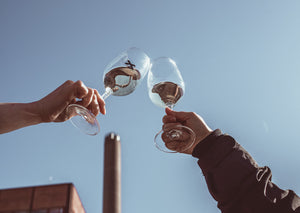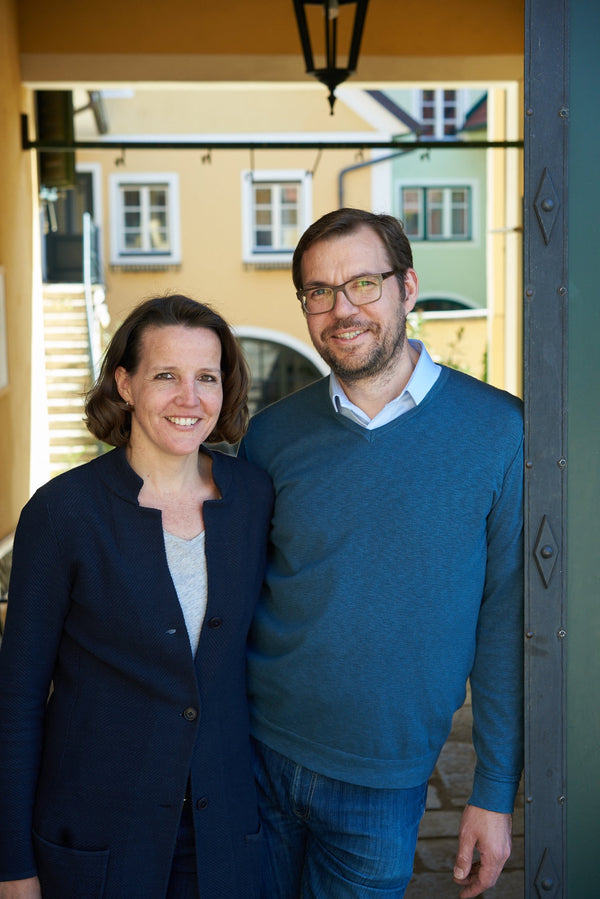
Knoll
Anyone who has toured the wine regions knows how beautiful the landscapes surrounding the vines are. The Wachau wine region, selected as a UNESCO World Heritage Site, reaches the top of the wine region rankings due to its steep slopes and the sparkling beauty of the Danube. However, the region's wines do not come second to the landscapes in the competition, which is evidenced by the worldwide appreciation and demand of the wines among wine lovers and collectors. Historically, many of the region's wines have been produced by cooperatives, as winegrowers rarely had their own cellar and the equipment needed for winemaking. The Knoll family, who enjoyed a cult reputation, bottled their first own wines in the 1950s, and since 1962, the hallmark of these wines has been the handsome saint of Saint Urban wine producers and vineyards on the labels.
The Knoll family cultivates 15 hectares of vineyards, most of which are located on the best terraces in the eastern Wachau. The most famous of these shelters are Kellerberg, Loibenberg, Pfaffenberg and Shütt. The wines are extremely long-lived thanks to their tangible texture and precision, and often express their full potential only after years of cellaring. Most of the orchards are planted with classic Grüner Veltliner and Riesling vines, but Muskatellera and Gelber Traminer are also produced. In the climate of Wachau, the coolness of the Atlantic, the winds of the Alps and the warmth of Pannonia mix. Therefore, the temperature differences between day and night are considerable, especially in summer and autumn. The proximity of the Danube evens out the temperature peaks and also eases the risk of spring frost, typical of a cool region.
Knoll's vineyards are located right in the eastern parts of the Wachau, where the weather conditions are slightly warmer than the rest of the region, although the climate is still classified as cool. The soil of the shelters mainly consists of gneiss and loess. Riesling thrives especially on steep and poorer soil terrace gardens, while Grüner Veltliner grows on the richer soils of the lower parts of the slopes. The farms of the farm are worked by hand - partly because it is not possible to take tractors to the steep slopes. In the cellar located in the village of Unterloiben, the wines are allowed to mature in peace with time. The wines age in steel tanks and old oak barrels, and the long lees maturation makes them multidimensionally layered and lingering.
A representative of the third generation, Emmerich Knoll, runs the winery together with his wife Anja. Emmerich's father, who bears the same first name, his mother, Monika, and his brother, August, are also involved in the operations of the farm. Time will tell if the sons of the family, Julian or Emmi IV, will become winemakers like their father. Knoll's farm belongs to the Vinea Wachau Nobilis Districtus association of Wachau wine producers, which requires its members to have high standards in terms of viticulture methods and production. The farm's wines are traditionally classified according to their maturity into the Federspiel and Smaragd categories. The family restaurant Loibnerhof Familie Knoll also operates in connection with the farm.
It's no wonder that Knoll's Grüner Veltliner beat its competition in 2002 at a tasting organized by Jancis Robinson in London, where Austrian white wines were juxtaposed with, among others, the best of Burgundy. In a couple of decades, Austrian wine production has, in our opinion, been polished into an even more sparkling diamond, and today Knoll's wines are definitely among the top in the country.

